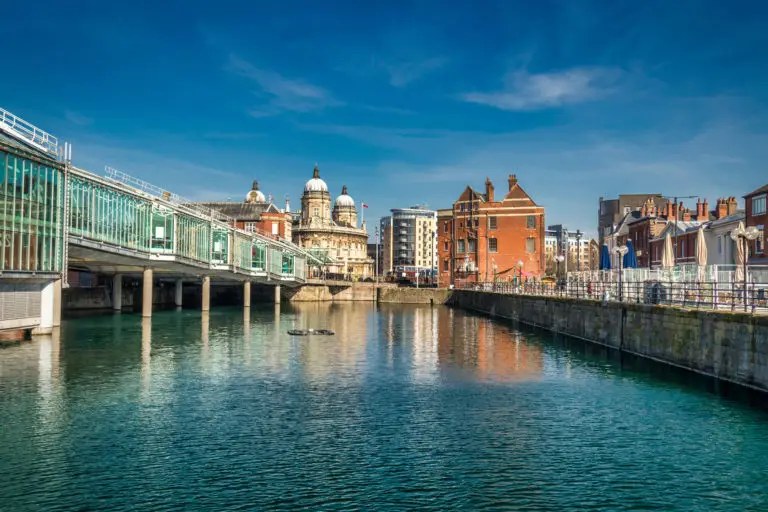In the next of our series of blogs looking ahead to the local elections in May, we explore the key council battlegrounds in the North of England. There are several races to watch with the elections providing an indication of how the ‘Red Wall’ will fare at the next general election.
By Ben Farmer, Esther Magrath, Lily Sanders and Hoda Taher.
-
Bury
Labour have had control of Bury Council for more than a decade. The Council generally elects its councillors in thirds, but all councillors will be elected this year.
Bury has seen a trend this year of Conservatives/Independents defecting to Labour or becoming independent MPs/councillors. This can be seen first with Bury South MP Christian Wakeford who defected from the Conservatives to Labour in January over the partygate scandal, then with Independent Councillor Gareth Staple-Jones who also joined Labour on the same day and with Bury Councillor Yvonne Wright who quit the Conservative Party in February after 22 years and will be standing as an independent candidate in the local elections after announcing that her values ‘are no longer aligned to Bury Conservatives’.
Although Labour look set to retain control of the Council, Bury’s large Jewish population could provide an opportunity for voters to judge how effectively Keir Starmer has tackled antisemitism within the party. Bury Conservative Party, also face challenges with the Jewish community after two of their candidates were recently accused of posting antisemitic comments online.
Labour will be looking to hold on to Bury, particularly as the outcome of the local election is expected to be a key indicator for the next general election, where Labour will be looking to re-win the Bury North seat after losing it to the Conservatives’ James Daly in 2019.
-
Sunderland
At Sunderland council 25 seats are being contested in 25 wards. Currently, the Labour party holds 43 seats out of the total 75, meaning the loss of just six seats would put Labour out of overall control. In 2021, Labour lost nine council seats while the Conservatives gained six. Although unlike other parts of the North East, the area didn’t gain any Tory MPs as part of the collapse of the ‘Red Wall’ in 2019, Labour’s majorities were slashed as well as the party’s historic hold on the council loosening over recent years. Key battleground wards include Washington South where the incumbent is Graeme Miller, the current council leader, as well as St Peter’s, St Chad’s and Barnes where the Conservatives made gains from Labour at the last election.
There is a real possibility that Labour could lose their majority of only six seats and with such a swing, the council would move into No Overall Control. In the event of the council falling into No Overall Control, the Conservatives could band together with the Liberal Democrats to either in a formal coalition or confidence and supply agreement which would represent a major shift in the city’s governance. If the Conservatives took control of the council for the first time in its 48-year history, it would represent a major blow to Keir Starmer’s Labour Party.
There are various key councillors not standing for re-election such as Labour councillor Betty Gibson who has served since 2004 and Conservative George Howe, who has represented the Fulwell ward since 1996.
-
Wakefield
Wakefield Council has historically been controlled by Labour since its creation in 1973, but the party lost several seats to the Conservatives last year. Currently, Labour has 43 seats, the Conservatives have 17 seats, the Lib Dems have two seats and there is one Independent.
Like Bury, Wakefield is part of the Conservatives’ Red Wall of former Labour strongholds, with the Conservatives having won the seat from Labour at the 2019 General Election, the first time a Tory had been elected here since 1931. However, the seat is now facing a by-election, expected in June or July 2022, in the wake of Wakefield MP Imran Ahmad Khan being found guilty of sexual assault, setting an interesting background for the upcoming local elections. Although the borough is set to benefit from £20m in levelling up funding from the Government, Labour should be able to capitalise with voters on the partygate scandal and the cost of living crisis nonetheless to maintain its comfortable majority on the Council.
-
Hartlepool
Hartlepool continues to make headlines as it becomes the go-to example of Labour’s Red Wall collapse and this year’s local elections are no different. 12 seats are up for grabs this year, following a whole council election in 2021 due to changes in the borough’s electoral boundaries. All eyes will be on Labour as they wait to see whether the hits to the Conservative’s popularity amidst the ongoing scandals will translate to a significant loss of votes in Hartlepool.
Labour infamously lost the formerly safe seat in Hartlepool at a 2021 by-election to Conservative Jill Mortimer, which saw the seat turn blue for the first time since 1974. The local electorate’s trust in Labour has continued to dwindle with the perception that the party did not share the area’s strong preference to leave the European Union in 2016 referendum; Hartlepool overwhelmingly voted leave (70%). This sentiment had been echoed by Labour leader Keir Starmer in the aftermath of the devastating loss, as he stated that the party had “lost the trust of working people.”
Labour lost control of the Council last year, which is now led by a coalition between Independents and Conservatives. While regaining overall control of the Council appears to be unlikely as there are only a third of seats up for grabs and Labour currently only has 11 of the 19 needed for a majority, the Labour party will need to show some signs that they are winning back voters in their former heartlands if they want to avoid the catastrophic loss they saw in 2019.
-
Cumberland Council
Elections for the new Cumberland Council unitary authority will be held on Thursday 5 May 2022. The 46 new councillors will sit in Shadow until the new council, covering the current area of Allerdale, Carlisle and Copeland, operates from 1 April 2023. A second new council will provide services to those in the current areas of Barrow, Eden and South Lakeland, the council’s name will be Westmorland and Furness Council. Both council elections will provide a first opportunity to see how the political leadership of the new authorities will play out.
Local elections in this area could be a key indicator for the future of the Conservatives’ ‘Red Wall’ seats won in 2019 from Labour which the Conservatives will be keen to defend. Within the new Cumberland Council area is the Red Wall seat of Workington, won by Tory Mark Jenkinson from Labour in 2019 and home to ‘Workington Man’ a term used by polling companies to describe the stereotypical swing voter.
-
Hull
Following a difficult 7 years for the Liberal Democrats, the party has a renewed sense of hope as it saw promising wins in the North Shropshire and Chesham and Amersham by-elections. The party are looking to continue to capitalise on these wins on May 5th with one of their areas to target being the Hull Council elections, where they currently hold 26 seats against Labour’s 29, meaning they need to take four seats to be able to win overall control.
The Liberal Democrats last held control of the council in 2010 and have been slowly regaining support in the area, having managed to win two seats from Labour in 2021. The recent defection of former Labour councillor Julie Conner to the Lib Dems has also left the incumbent party in a dangerous position, with a majority of just one seat. Losing control in Hull would ring alarm bells for Labour HQ who saw a close call in the Hull East seat at the 2019 General election, which Labour’s Karl Turner held onto, despite a 19.1% swing away from Labour compared to their vote share in 2017. Despite coming second in Hull East in 2019, the Conservatives only have one councillor in Hull, which is unlikely to change this year.





